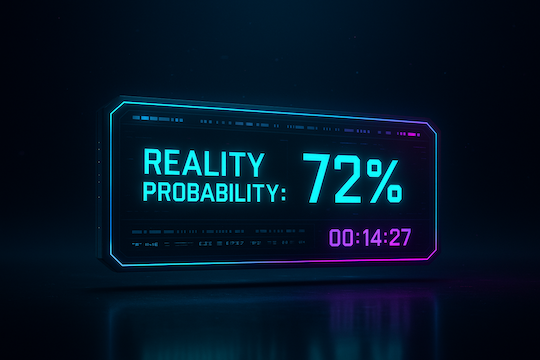
The Only Skill That Survives the AI Flood
Posted August 12, 2025
Chris Campbell
Last July, Eric Schmidt—the guy who ran Google while it went from dorm project to global mind-control apparatus—was asked about human purpose in an AI world.
His answer?
“Imagine if your purpose in life is to figure out what’s going on. And to be successful, just figuring that out is sufficient because once you figure that out, everything else is taken care of for you.”
He’s talking about sense-making—the rare but timeless skill of mapping reality accurately, in real time.
With complexity now growing faster than ever before…
He’s onto something.
As AI automates routine tasks, this becomes one of our most important “jobs”: figuring out what’s real, what’s noise, and how to act on it before everyone else catches up.
Sure, AI can help with this kind of sense-making, but there are fundamental reasons it can’t fully replace it—especially in fast-changing, high-uncertainty environments.
And not only does this skill also translate into every aspect of your life…
It might also foreshadow a day when pricing reality itself becomes bigger business than pricing companies.
(Yes, today we’re going full Inception—trying to predict the future… of predicting the future. And what it means for your portfolio.)
You’re Already in the Boot Camp
Of course, investing is already a great training ground for this future-proof skill.
You put your mental map on the table. The market instantly tells you if it matches reality.
No sugarcoating. No hand-holding.
The market doesn’t care about your feelings. It rewards accuracy. It punishes delusion.
Watch the best investors long enough, and you’ll notice they’re not lucky or plugged into some secret wire of inside info. (Unless, of course, their name rhymes with Glancy Scolosi.)
They just see the world more clearly. Their maps are sharper. They adapt faster.
Charlie Munger calls it a “latticework” of mental models—an adaptable toolkit with dozens of ways to solve a problem.
Psychologist Philip Tetlock found a similar concept in his research on “superforecasters.” These aren’t clairvoyants. They’re in perpetual beta—updating their beliefs constantly, even for the tiniest new data points.
But, to Schmidt’s point, in the age of AI, this skill becomes even more crucial.
The Quiet Decay of Know-How
The shelf life of any particular skill used to be decades. Now? Seven years on average. In tech-heavy fields, two to five.
AI is crushing that further.
This means the most valuable skill isn’t leadership training. It isn’t coding. It’s not even prompt engineering.
It’s the ability to update your mental map—fast.
- Take in new information.
- Weigh it against what you thought you knew.
- Adjust instantly.
- Act before the world catches up.
Good traders already live in this loop: Predict → Outcome → Update → Repeat.
But that loop is about to get a whole lot bigger…. and more dynamic.
Prediction Markets: The Purest Form
Schmidt’s point becomes nuclear when you connect it to prediction markets.
These are systems built to monetize “figuring out what’s going on.”
They price any measurable uncertainty—in real time. And their surface area is virtually infinite.
Politics. Macro. Science. Tech. Climate. Fashion. Fads. If it has a knowable outcome, it can have a market.
The stock market only covers one sliver of uncertainty: the future cash flows of public companies. Prediction markets can price everything else.
And here’s the thing…
The Craziest Prediction of Them All
Prediction markets won’t just make money. They’ll make us smarter.
Because the surface area is so wide, everyone will have a relatable way to play.
But unlike politics or social media, there’s no incentive to be persuasive but wrong. In prediction markets, only reality pays.
Scale that across millions of participants and thousands of events, and you’ve got the largest public school for probabilistic thinking in history.
Schmidt says your purpose is to figure out what’s going on. Prediction markets turn that into a scoreboard.
The craziest prediction?
In the AI era, that scoreboard might just become bigger—and more important—than the stock market itself.
Tomorrow, we’ll dive into the mechanics of how that flip could happen, why crypto will inevitably be a huge part of it…
And how to get ahead while we’re still in inning one.
